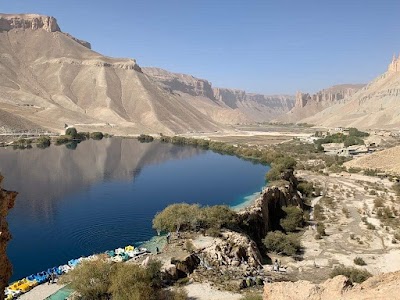Bazarak (بازارک)
Overview
**Bazarak: A Gem of the Panjshir Valley**
Bazarak is a picturesque town located in the **Panjshir Province of Afghanistan**, nestled in the heart of the stunning Panjshir Valley. This charming town is renowned for its breathtaking natural beauty, surrounded by rugged mountains and lush greenery that create an idyllic backdrop for visitors.
Historically, **Panjshir** holds significant strategic and cultural importance. The valley has resisted numerous invasions, serving as a natural fortress for its resilient inhabitants. The name "Panjshir," which translates to "Five Lions," is tied to a legendary tale of five brothers who built a dam in the valley. This story symbolizes the strength and unity that are deeply embedded in the town's identity.
The **infrastructure** of Bazarak has evolved remarkably over the years. Modern development took off during the 20th century, showcasing a harmonious blend of traditional Afghan architecture with contemporary, functional buildings. The geographical challenges of the valley made construction a laborious yet rewarding endeavor. Builders primarily sourced materials locally, favoring abundant resources like stone and timber.
Craftsmen and engineers often relied on centuries-old techniques, adapting them with modern tools to ensure durability against the elements. The buildings feature stone walls that provide warmth during the frigid winters and keep interiors cool in the scorching summers. Most roofs are flat, serving versatile purposes from drying crops to hosting social gatherings.
A significant landmark in Bazarak is the **tomb of Ahmad Shah Massoud**, the legendary guerrilla commander affectionately known as "The Lion of Panjshir." Massoud is celebrated for his vital role in resisting Soviet occupation in the 1980s and later opposing the Taliban. His tomb has become a pilgrimage site, symbolizing the deep reverence the people of Bazarak have for their national hero.
The construction of the mausoleum involved craftsmen from across the region, who meticulously sourced white marble from local quarries. This magnificent structure stands as both a tribute and a symbol of the resilience and pride of the Panjshir people.
Bazarak is also famous for its **local bazaars and markets**, which are vibrant hubs of activity. These bustling markets present a colorful tapestry of sights and sounds, drawing in residents and visitors eager to trade goods ranging from fresh produce to intricately woven carpets. The town’s layout harmoniously blends traditional shops with newer establishments, encapsulating its spirit of continuity and adaptation.
The primary occupations of many Bazarak residents revolve around **agriculture and animal husbandry**. Terrace farming is widely practiced, maximizing every inch of arable land available. The Panjshir River, flowing through the valley, provides essential irrigation, making the area one of the most fertile regions in Afghanistan. Locals cultivate crops like wheat, barley, and potatoes, while orchards bursting with apples, apricots, and mulberries paint the landscape in vibrant hues.
Despite modest resources compared to urban centers, the **education and healthcare systems** in Bazarak have seen notable improvements. Schools have been established with a focus on preserving local culture while integrating modern curricula. Community involvement in constructing these schools fosters a strong sense of collective responsibility and investment in the future.
Healthcare facilities, although basic, have expanded in recent years through both governmental and non-governmental support. Clinics are typically located close to residential areas for easy access. Innovative solutions, such as mobile medical units, have been implemented to ensure that even the most remote parts of the valley receive essential health services.
While Bazarak may appear serene, it has faced various challenges, including political instability and natural calamities. However, the town’s ability to adapt and thrive amidst adversity speaks volumes about its resilience. Bazarak is a place where tradition intertwines with modernity, where past heroes are honored, and where every stone and stream tells a story of its rich history.







